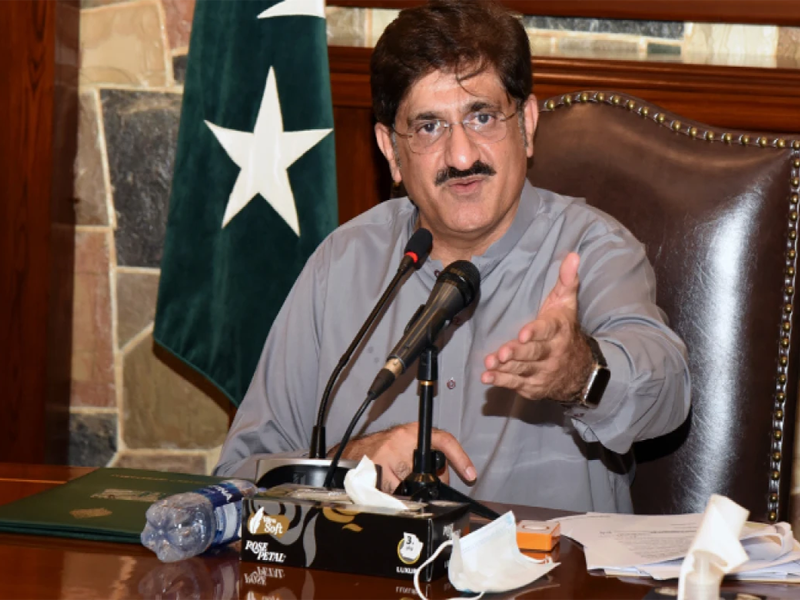Police governance reforms ‘need of the hour’: CM Murad

- 104
- 0
KARACHI: Sindh Chief Minister Syed Murad Ali Shah has highlighted the urgent need for governance within the police force to ensure justice, neutrality, and effective public service.
Addressing the Association of Former Inspectors General of Police (AFIGP) Annual Conference at the Central Police Office (CPO), he called for aligning police operations with Quaid-e-Azam Muhammad Ali Jinnah’s vision of discipline, impartiality, and service to the nation. “There is no need for drastic reforms; instead, the focus should be on governance, capacity building, and adopting community policing methods and attitudes,” Shah remarked during his keynote speech on the theme “Police Reforms: Transforming Challenges into Opportunities.”
The chief minister stressed that while the police must remain free from external pressures-political, financial, or religious-oversight is equally important. “Supervision ensures accountability. The police are a service, not a force,” he said. Shah criticized the integrity issues within the police, noting that any officer recommended for posting is often perceived as lacking credibility. He also clarified the distinction between policymaking and operational freedom.
“Policymaking is the government’s responsibility, but day-to-day operations must be left to the police,” he said, inviting former IGPs to collaborate on refining policy approaches. Murad Shah underscored the role of police uniforms as a symbol of public service rather than authority. “The primary duty of the police is to serve the people,” he stated. Comparing police services to the armed forces, he noted that while police promotions are less structured, merit should always guide advancements.
The chief minister also called for the active involvement of civil society to enhance transparency and better policing practices. Shah raised concerns over judicial orders disrupting governance, citing past examples where key officials like the Inspector General of Police and the Executive Director of Jinnah Postgraduate Medical Centre were barred from serving. “Judicial decisions must consider their implications on the ground realities,” he urged. The conference featured contributions from prominent figures, including Minister of Home Affairs Ziaul Hassan Lanjar, IG Police Ghulam Nabi Memon, and President of AFIGP Afzal Shigri. Lanjar lauded the Police Order 2022 as an improvement over previous frameworks and emphasized his ministry’s commitment to granting decision-making freedom to the IG Police. Ghulam Nabi Memon addressed queries raised during the panel discussions, while Afzal Shigri urged the government to implement essential reforms.
Murad Ali Shah reiterated the need for collective efforts from the government, police, and civil society to enhance governance and public service. “Quaid-e-Azam’s vision offers a clear roadmap: discipline, accountability, and impartiality must guide the police force,” he said.

















































